Managing the whole revenue cycle is a crucial part of a Healthcare Revenue Cycle Manager job. This process starts when a patient makes an appointment and ends when the payment is received and processed. Because healthcare billing is so complicated, having skilled revenue cycle management makes sure your practice gets paid for the services it offers, reduces mistakes, and improves cash flow.
Why You Need a Healthcare Revenue Cycle Manager
The Healthcare Revenue Cycle ensures that all parts of the revenue cycle run smoothly and are well-managed. This professional ensures that every step of the process, from registering patients and checking their insurance to submitting claims and following up, is done quickly and correctly. This reduces delays and ensures payments are made on time. This job helps your practice stay financially healthy by lowering the number of claim denials, speeding up the reimbursement process, and improving overall financial performance.
What a Healthcare Revenue Cycle Manager Does
Registering and Scheduling Patients
The first step in the revenue cycle is registering patients, which is very important for making sure that their insurance and demographic information is correct. The healthcare revenue cycle is in charge of this process. They make sure that all of the information about each patient is recorded correctly so that there are no problems with billing later on.
Checking Insurance and Eligibility
Before providing services, a Healthcare Revenue Cycle Manager makes sure that a patient’s insurance covers them. This proactive step makes sure there are no surprises about patient payments and helps keep claims from being denied because of eligibility problems.
Medical Coding and Charge Entry
For correct billing, medical coding must be done correctly. The Healthcare Revenue Cycle Manager makes sure that medical coders use the right ICD-10, CPT, and HCPCS codes for the services they provide. This process is very important for making sure that the right amount is billed and paid.
Submitting Claims and Following Up
The revenue cycle manager ensures that the team sends claims to insurance companies on time after creating them. They also monitor the status of claims, follow up on unpaid claims, and handle any necessary resubmissions. This ensures that the revenue cycle continues smoothly and that your practice receives payment faster.
Managing Denials and Appeals
One of the most important things a Healthcare Revenue Cycle does is deal with claim denials. They try to figure out what caused the denials and then do what needs to be done to fix the problems. The manager files appeals and makes sure that all the paperwork is correct so that future denials don’t happen.
Posting Payments and Billing Patients
The healthcare revenue cycle manager posts payments to patient accounts as soon as they are received, ensuring all payments are recorded correctly. They also handle billing patients for any unpaid bills, such as copayments, deductibles, or services that aren’t covered.
Reporting and Analyzing
The healthcare revenue cycle manager looks at performance metrics and makes reports that show where things could be better on a regular basis. These reports are very important for making sure that the practice is meeting its financial goals and following the rules.
Benefits of Hiring a Healthcare Revenue Cycle Manager
Better Cash Flow
Your practice can have a smoother billing process if you hire a healthcare revenue cycle. This makes sure that claims are sent in correctly and on time, which speeds up payments and improves cash flow.
Fewer Denials of Claims
A well-managed revenue cycle means fewer mistakes on claims, which means fewer chances of denials. A Healthcare Revenue Cycle Manager works ahead of time to make sure that claims are clean and follow the rules, which leads to higher rates of first-pass claim acceptance.
Cost-Effective
A healthcare revenue cycle management can cut the costs of managing revenue by a lot by making processes more efficient, automating tasks, and cutting down on administrative mistakes. This lets your practice focus on giving good care without having to worry about money problems.
A better experience for patients
To make patients happier, you need to bill them correctly, talk to them on time, and make sure they understand their responsibilities. A Healthcare Revenue Cycle Manager makes sure that patients know what they owe and that they are billed correctly, which makes their experience with your practice better.
Managing Risk and Compliance
The Healthcare Revenue Cycle Manager makes sure that your practice follows all the rules set by the industry, such as HIPAA and rules set by payers. This lowers the chance of expensive audits and fines, making sure that your business stays within the law.
Problems with Healthcare Revenue Cycle Manager
Even when best practices are followed, managing the healthcare revenue cycle can still have problems, such as
Coding that is Hard to Understand:
It can be hard to code correctly because there are so many medical codes and billing rules. The healthcare revenue cycle manager makes sure that all codes are assigned correctly so that claims don’t get denied.
Payer Variability:
Different insurance companies have different policies, which makes it hard to figure out how to get paid back. A healthcare revenue cycle manager makes sure that claims meet the requirements of the payer and cuts down on confusion.
Denial Management:
Denials can cost a lot of money and take a long time. A healthcare revenue cycle management works to quickly deal with these denials and make sure they don’t happen again.
How Technology Improves the Management of Healthcare Revenue Cycles
In today’s fast-paced healthcare world, technology is very important for making the revenue cycle work better. Advanced healthcare revenue cycle management software helps managers of healthcare revenue cycles automate everyday tasks, like
Checking Insurance:
Automating eligibility checks saves time and makes it less likely that there will be problems with coverage.
Claim Scrubbing:
Automated claim scrubbing tools find mistakes before claims are sent to insurance companies.
Processing Payments:
Posting and reconciling payments in real time helps keep financial records accurate.
Analytics:
RCM software shows managers how well their teams are doing by giving them access to performance metrics. This lets them spot trends and make decisions based on data.
Conclusion
A healthcare revenue cycle manager ensures that healthcare organizations get paid for the services they offer while minimizing mistakes, denials, and delays. By managing the entire process from registration to final payment, the healthcare revenue cycle management ensures that your practice runs smoothly, stays compliant, and improves overall financial health.


